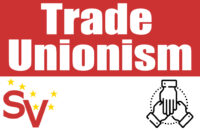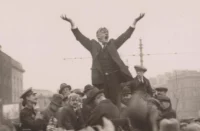Over the last two decades legislation has been introduced that provides workers with some collective voice or mechanisms for pursuing collective goals. None of these have been collective bargaining or legislation providing for union recognition.
Ireland stands out among most countries in still not having union recognition and collective bargaining in legislation. While these ambitions are certainly not a panacea for the weakened and declining trade union movement, they would certainly assist organised labour in both defending and enhancing the conditions of workers and in organising the unorganised. In that sense they would represent a tipping of the balance of power between labour and capital. And capital knows that.
A number of academics and researchers have looked at two pieces of legislation in particular, intended to provide some form of collective workers’ voice, and the lobbying efforts of American transnationals and their representatives in Ireland. This research shows the anti-worker influence that the American Chamber of Commerce in Ireland, and others, have had on workers having a voice in their work-place.
In 2014 Tony Dundon and colleagues published a paper in the journal Work, Employment and Society entitled “Employer occupation of regulatory space of the Employee Information and Consultation (I&C) Directive in liberal market economies.” Not a catchy title; but some information garnered from freedom of information requests was extremely interesting.
The paper looked at the transposition of the EU Information and Consultation directive in Ireland, the influence of the state and employers, and, unfortunately, the relative absence of union effort, interest or influence in this legislation.
Now, we might say that these forums can be part of a union-avoidance strategy and that as trade unionists we want nothing to do with them. But if this legislation is being introduced, and we know that employers are lobbying to weaken it, should we not have tried to influence the process to strengthen it? With much-weakened private-sector unionisation, is there merit or value in trying to make use of I&C forums as part of unionisation efforts?
The EU directive required member-states to introduce supportive dialogue mechanisms in the work-place in three areas:
- information pertaining to the company
- information and consultation on anything that might lead to jobs being threatened, and
- information and consultation with a view to reaching agreement on any changes to work organisation or contractual arrangements.
This is the espoused spirit and intent of the directive. In Ireland, however, this got transformed into a weakened “with a view to reaching agreement” for consultation, with a clause for existing forums (some of which never existed), only for employments greater than fifty, and, most importantly, in harmony with direct individual employee engagement models and away from the collective spirit and intent of the dialogue.
Also, importantly, employees have to actively trigger and win support from colleagues for an I&C.
The published research reveals the efforts made by both employers (and their collective bodies) and the state in reinforcing a voluntarist (voluntary opt-out for employers) approach to unions and marginalising the sharing of decision-making powers with workers. The overriding concern in Ireland, by both the state and employers, was to avoid mandatory collective-voice systems of any kind that might, according to them, threaten inward investment into the country.
The freedom of information request showed the active lobbying by IBEC, the American Chamber of Commerce in Ireland, the Irish Management Institute and Intel, in particular, to water down and limit the purpose of the legislation. IBEC was concerned that this would lead to union recognition by the back door, and the Department of Foreign Affairs was opposed to it at the EU level, for fear of business and investment concerns and, specifically, that this would cut across the direct-engagement human-resource management models of transnationals.
Intel had meetings with the relevant ministers and department officials. Indeed Intel submitted a document entitled “Elements of the draft directive which must be changed”—and much was changed! Department officials would update the minister on concessions they were winning that reduced the information-sharing necessity for Ireland.
The writers of the paper mentioned above went so far as to describe this as “ideological collusion between the state and big business”—as Marx described it, managing the affairs of the ruling class.
We cannot overlook the irony of employers committing huge resources to organising themselves collectively and co-ordinating their activity to prevent workers having that same collective voice or organisation.
This collective effort was once again on display in successful efforts to weaken the attempted “right to bargain” legislation of the Industrial Relations Act (2015). Again, Tony Dundon and colleagues published a paper in 2020 in the Industrial Relations Journal and, through a freedom of information request, found out that the relevant department in the preparation of this legislation met the ICTU once, IBEC once, and the American Chamber of Commerce four times!
In addition, the American Chamber of Commerce met the minister directly, while there is no evidence that the minister met the ICTU.
The American Chamber of Commerce said they felt “seriously threatened” by any moves towards union recognition or collective bargaining. Consequently, the legislation workers got was not union recognition, collective bargaining, right to access, union facilities, health and safety inspections or anything meaningful that might “threaten” American capital in Ireland: we got a very limited—and, in many cases of workers seeking to organise and bargain, useless—piece of legislation.
A new Fair Work Act is necessary, one that provides for union access, recognition, collective bargaining, and speedy, effective strike action. It is not a panacea. It would, by itself, do little to organise the unorganised; but it could provide a mechanism for rebalancing power in the work-place slightly more towards workers, which could qualitatively change the balance of power in society.
But, as we know, the state is not neutral: it is on the side of employers. With or without legislation, workers need to organise.






